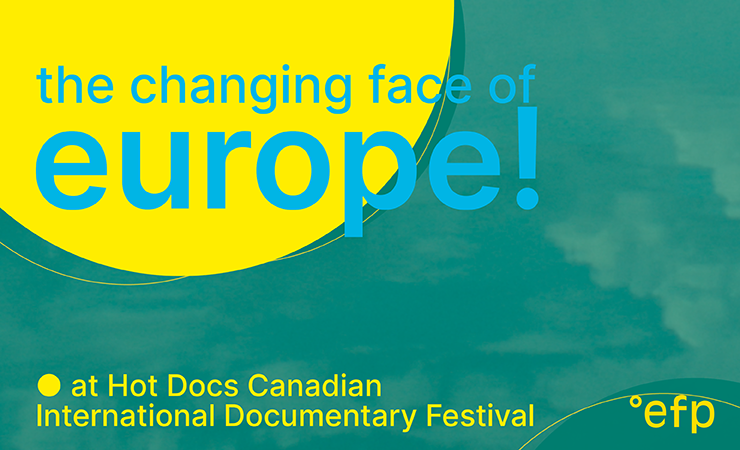
Viera Čákanyová’s mesmerising feature essay White on White picked up the award for Best World Documentary Film at Ji.hlava IDFF 2020. The director talks AI, the absurdity of the internet and Lars von Trier with BDE.
Early in our interview on a somewhat patchy WhatsApp connection, the conversation understandably turned to the internet and its ‘absurdities’, a word that director Viera Čákanyová uses a lot.
In the film, Čákanyová’s internet on the Antarctica station, where the film is located, breaks down due to a raging storm, not that this was of much concern to her. “It was absurd to actually have internet there, so when it broke it was how it should be,” she says. “You are chatting with someone who is in Bratislava or whatever and you are like, “Ok, I’m in Antarctica.” It’s absurd.”
Back home in Slovakia, there has been no respite online since White on White won the Opus Bonum gong at the weekend. “I wish the internet would break now on civilisation, in my apartment, because I need to answer so many emails and phone calls. You just want peace and just go to the forest and take a walk, and I can’t do it.”
White on White is a personal video diary recording some of the 54 days she spent on a Polish Antarctic station making the experimental doc Frem, itself described as “a reaction to the current wave of post-humanist thinking caused by the development of technology and artificial intelligence as well as the climate crisis.” Despite sharing the camp with 30 or other people, her existence on the cold and windy terrain is essentially a solitary one.
She admits that she had her doubts that anybody would be interested in such a personal and reflective story, or indeed that she should even shape her footage into a documentary in the first place. “I started to record this diary from some internal need, a sort of self-therapy, and so I didn’t have this idea of making a film out of it, but when I came back and showed it to some friends that I trust – when they saw it they told me it was worth making a film out of it,” she says.
“Because it is obviously very hard for you to decide when you are the main character and it is personal, you need some distance from yourself and to be able to see if it is really worth showing,” she adds.
We are told at the beginning of the film that she is there to observe the disappearing natural world, but she also decides to feature a very specific (and decidedly non-organic) character in the film. We meet ann_w, an artificial neural network with whom Čákanyová has a series of fascinating and illuminating (and ostensibly logical) conversations. These dialogues cover topics such as the Second Law of Thermodynamics, the meaning of ‘meaning’ and even Lars von Trier’s efficiency as a director in transferring usable energy into heat. While ann_w seems blunt at first, later in the film she/it begins to seek out Čákanyová for further exchanges.
It’s at this point in our interview that Čákanyová fesses up, admitting that there is more than a touch of invention and creative artifice within her dialogue with the AI. “I just imagined that if some network would be trained in this knowledge of thermodynamics then the answers would be something like this,” she says of the level of sophistication she accords to the AI. “It might be possible a few years from now, but it’s not that sophisticated yet.”
The Antarctic terrain is beautiful but harsh, and movement for Čákanyová in such freezing windy conditions is rendered twice as difficult. At one point she simply can’t put her gloves back on because her hands are too cold to grip them. But this does not stop her from taking a naked plunge into the icy Antarctic waters later in the film.
Just as importantly, the experience of solitude is both invigorating and instructive. She has never felt more alive and cannot envisage her return to normal life, and is able to articulate myriad “nuances” of snow, wind and weather. “There is no danger [on Antarctica], and that is maybe also interesting, because I wasn’t scared in the landscape. There are just penguins and seals and birds, but nothing that can harm you. That was also why maybe it was such a peaceful feeling, you didn’t feel threatened by anything, just by the weather and the physical forces.”
The process of recording was secondary to the experience, in part because a lot of the time
the snow glare was so powerful that Čákanyová couldn’t even see the image in the viewfinder. Quite often, therefore, the image is out of focus and the camera work is shaky. But this not jar in any way. The film is what it is because it reflects not only what she experienced, but how she experienced it.
“Yeah, I was resigned on this, and it was a relief not to think about the technical quality of the images, and check all the time the camera and the composition and whatever. I just didn’t care about it,” says Čákanyová. “It would be too much energy. And then I obviously saw that there was a lot of dirt on the lens [but] I didn’t want to clean it in the grading and make the image perfect, because it wasn’t perfect. It was my experience of the place, and that experience wasn’t perfect.”










